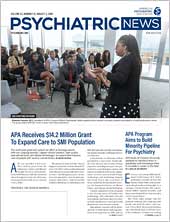Though symptoms of schizophrenia tend to emerge in individuals in their late teens and early 20s, this disorder is now recognized as one with significant roots in human development.
“Stressors in the prenatal period are known to increase the child’s risk for later schizophrenia,” said Robert Freedman, M.D., a professor of psychiatry at the University of Colorado Anschutz School of Medicine. Freedman has studied schizophrenia biology for many years. “The placenta itself may be the site that conveys the mother’s stress to her unborn child.”
Freedman was referring to the findings of a new multi-institute study led by investigators at the Lieber Institute for Brain Development in Baltimore.
Making use of a large collection of human placenta samples, the researchers demonstrated that this fetal organ overexpresses many genes associated with schizophrenia risk.
“The placenta is the convergence zone between the experiences of the mother and the fetus,” Daniel Weinberger, M.D., director and CEO of the Lieber Institute, told Psychiatric News.
Weinberger and his team first conducted a comprehensive analysis of DNA samples from both individuals with schizophrenia and healthy controls. They found that people with schizophrenia who were born following severe birthing complications, such as preeclampsia or intrauterine growth restriction (IUGR), had significantly more genetic variants associated with risk for schizophrenia than both controls and people with schizophrenia who had non-stressful births. The researchers confirmed this association in five independent samples spanning over 2,800 individuals in Europe, Japan, and the United States.
Next, they analyzed genetic profiles of hundreds of placentae, including many from women who had experienced either preeclampsia or IUGR during pregnancy. The investigators found that genes associated with schizophrenia risk were highly activated in placental tissue from women who had experienced either complication; these genes were not turned on in placentae from women who had other problems during pregnancy, such as hepatitis, gastritis, or dilated cardiomyopathy. According to the authors, the findings suggest these risk-associated genes are not turned on in response to general stress, but stress that specifically impacts the placenta and uterine environment.
Weinberger said that these findings might help explain why schizophrenia occurs more frequently in men than women. “We’re not exactly sure of the mechanisms, but animal studies have demonstrated that male fetuses are more at risk for pregnancy complications,” he said. “These genes could be responsible.” The team went back to their whole collection of placental samples and found that male placentae did indeed have slightly higher expression levels of schizophrenia risk genes.
As for the clinical implications, Weinberger said this study reinforces the importance of proper prenatal care to minimize the chances of a complicated birth. “Admittedly, we still have limited insight into prevention strategies for pregnancy complications,” he said.
Weinberger told Psychiatric News that one of the other groups at the Lieber Institute has been developing a method to make placentae out of stem cells. Using these cultured placentae, the researchers will examine how the placenta develops under various conditions to try and identify how and when placenta integrity might get compromised.
This study was published in Nature Medicine and was supported by grants from the National Institutes of Health, the Brain and Behavior Research Foundation, Max Planck Society, and others. ■
An abstract of “Convergence of placenta biology and genetic risk for schizophrenia” can be accessed
here.
